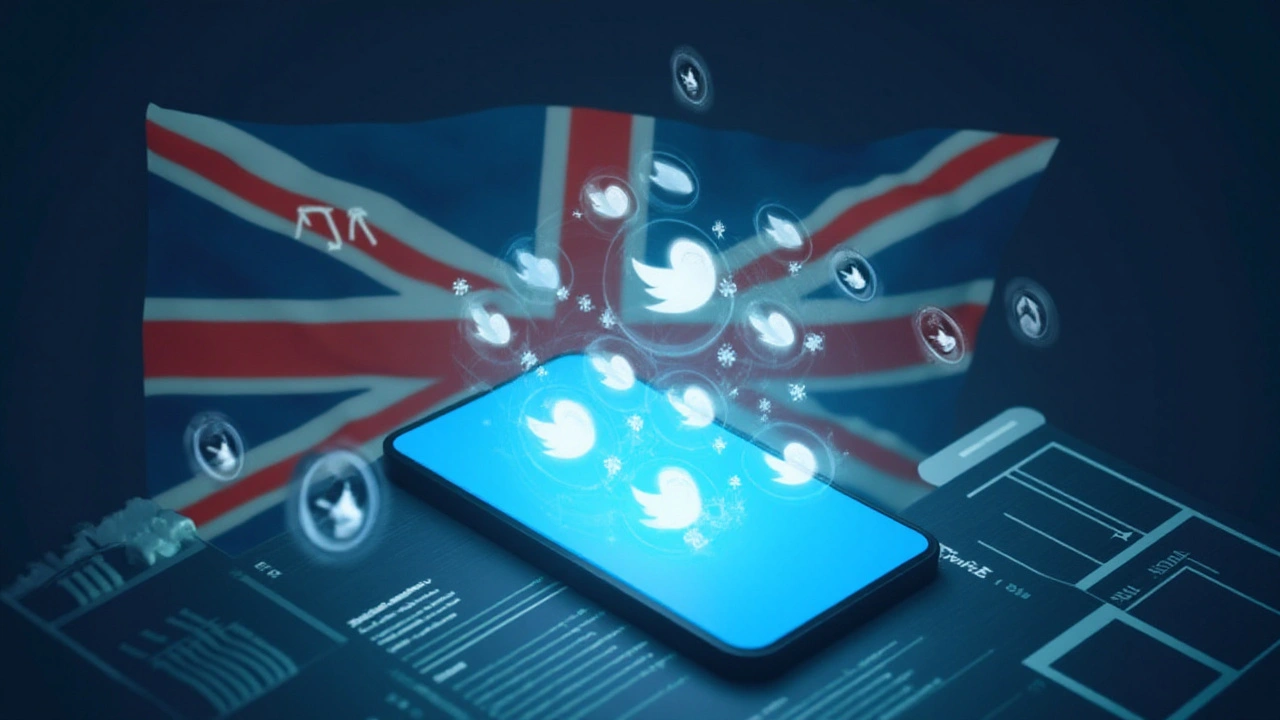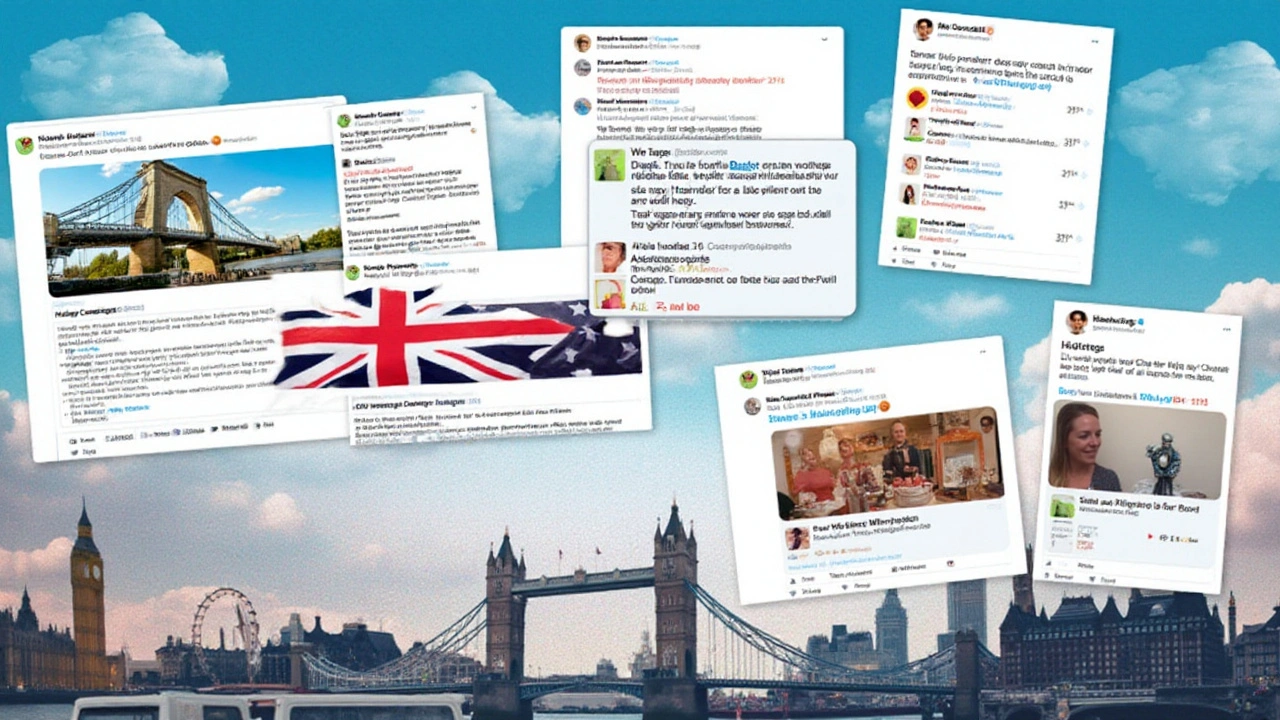In recent years, the landscape of marketing on social media has continually evolved, with Twitter playing a pivotal role in shaping how brands communicate with their audience. The introduction of AI tools like ChatGPT presents new opportunities for marketers to refine their strategies and engage with their followers in more meaningful ways. From crafting personalized messages to anticipating audience needs, AI can offer significant advantages.
For marketers, understanding how to integrate ChatGPT into their Twitter campaigns can be the key to unlocking greater engagement and brand loyalty. This article explores the impact of AI on Twitter marketing strategies, offering insights into practical application, potential challenges, and the exciting future that lies ahead.
- Understanding ChatGPT in Marketing
- The Evolution of Twitter Marketing
- Boosting Engagement with AI
- Crafting Personalized Content
- Challenges and Ethical Considerations
- Future Trends in AI-Driven Marketing
Understanding ChatGPT in Marketing
ChatGPT, an advanced AI-driven conversational model, is rapidly transforming how marketers approach advertising and consumer engagement. By utilizing this tool, businesses can effortlessly generate human-like text, which is crucial for building authentic interactions on platforms like Twitter. Unlike traditional methods that rely heavily on manual effort, ChatGPT streamlines the process of content creation by offering suggestions that are contextually relevant and creatively appealing. This allows marketers to focus more on strategy, knowing that their content generation is in capable hands. It harnesses a deep learning model trained on a diverse range of data, enabling it to mimic the nuances of human speech and adapt to various conversational styles.
The AI's capacity to understand and employ language naturally is not just limited to text generation. It entails a deeper comprehension of how audiences communicate online, which is invaluable in creating content that resonates with them. Brands can customize their voice and tone to better align with their target demographics, enhancing their brand's relatability and presence on social media. Moreover, ChatGPT helps in monitoring trends and conversations on Twitter, allowing marketers to tailor their messaging proactively. This proactive approach enables brands to stay ahead in a competitive marketplace with content that speaks directly to their audience’s interests and needs.
Beyond crafting messages, ChatGPT contributes significantly by assisting in response management. With real-time capabilities, it can handle customer inquiries swiftly and accurately, improving response times and user satisfaction. This is especially pivotal as Twitter becomes a go-to platform for customer service interactions. Automated responses, curated through AI, ensure consistent and respectful engagement, freeing up human resources for more complex tasks. A key factor is the balance ChatGPT maintains between automation and personalization, ensuring interactions don't feel robotic but instead foster a welcoming brand persona. As noted by tech experts at OpenAI, "AI systems like ChatGPT can augment human capabilities in customer interaction, providing a blend of efficiency and warmth."
Furthermore, incorporating ChatGPT into marketing strategies allows for enriched data analysis and insights. It can process vast amounts of data collected from interactions, offering valuable metrics that guide decision-making. This data can uncover patterns and preferences among users, which, when interpreted thoughtfully, support refined marketing tactics. As AI continues to evolve, its integration in marketing promises innovative approaches, with ChatGPT positioned as a crucial ally for brands aiming to leverage AI for competitive advantage. Emphasizing both Twitter marketing and social media strategy, this AI tool offers marketers a way to engage meaningfully while efficiently managing the plethora of tasks associated with digital marketing.
The Evolution of Twitter Marketing
From its inception in March 2006, Twitter has dramatically transformed how brands engage with audiences. Initially, the platform was seen mostly as a novelty, a space where small snippets of everyday life were shared. However, companies soon recognized the potential of Twitter for marketing purposes. Brands could connect with customers almost instantly, drawing attention to updates, promotions, and new products with just a simple tweet. As time passed, Twitter's impact on marketing strategies became more profound, offering new features and tools that directly enhanced customer engagement and interaction.
One of the earliest shifts in Twitter marketing came with the introduction of the hashtag in 2007. This new feature revolutionized how information was organized and discovered on the platform, allowing brands to create signature hashtags that could trend globally. With the rise of the hashtag, campaigns gained a new interactive layer, prompting users to engage, participate, and share their experiences. Over time, Twitter became not just a marketing platform, but a place where community-building occurred, where brands could align themselves with causes and movements in a highly visible way. As analytics tools became available, marketers could measure the impact of their hashtags and strategize around trends more effectively.
In recent years, Twitter marketing strategies have continued to evolve with advancements in AI technology, such as the advent of ChatGPT. These tools have enabled marketers to elevate their campaigns by providing personalized and human-like interactions with users. According to a 2023 report by Hootsuite, companies using AI-driven content strategies showed a 20% increase in user engagement compared to those who did not. This indicates the growing importance of AI in maintaining dynamic and engaging content. By analyzing user interactions data, brands can predict trends and provide content that resonates with their audience's preferences, ensuring tweets are both timely and relevant.
"With the right AI strategies, Twitter can transform from a simple posting platform to a robust engagement and analytics tool," says Sarah Evans, a digital marketing expert.
The integration of multimedia within tweets has also been a game-changer. From images, GIFs, and videos to live streaming, Twitter has allowed marketers to craft visually compelling content that stands out in the feed. Video tweets receive, on average, 6x more retweets than photo tweets, underscoring the power of multimedia in driving brand messages. Meanwhile, live video, made possible with the introduction of applications like Periscope, further diversified how brands could connect with their audiences in real-time, offering behind-the-scenes looks, product launches, and interactive Q&A sessions.
As we move forward, the evolution of Twitter marketing strategies seems poised for even more dramatic changes. Influencer marketing continues to grow through platforms like Twitter, allowing brands to reach dedicated fan bases and drive conversations. With influencers incorporating AI tools such as ChatGPT into their outreach, there's a symbiotic relationship forming between personal branding and technology. Businesses that recognize these shifts and adapt accordingly are likely to maintain strong engagement and capitalize on emerging trends, using Twitter as a cornerstone in their comprehensive social media strategy.

Boosting Engagement with AI
In the fast-paced realm of social media, capturing an audience's attention on Twitter is no small feat, yet it's where Twitter marketing truly thrives. Leveraging the potential of AI, particularly tools like ChatGPT, opens a new frontier for enhancing how brands interact with their audience. AI can help in crafting tweets that are not only concise and compelling but also tailored to resonate with specific follower segments. The power of AI lies in its ability to process vast amounts of data to discern patterns, making it invaluable in creating content that aligns with trending topics and audience interests, thus boosting visibility.
One of the remarkable advantages of ChatGPT in social media strategy involves real-time engagement. Brands can use AI to maintain a consistent and responsive presence, tackling customer queries, and providing instant feedback—an aspect highly appreciated in today's digital age. Imagine the power of being able to reply to hundreds of mentions swiftly without losing the essence of human touch. Such interaction is not just about speed but ensuring that each response feels personal and relevant, a task for which ChatGPT is exceptionally suited, given its conversational design.
An interesting element often cited in research is that personalized content tends to generate 6 times more transaction rates. AI excels in this area, providing insights into user preferences which marketers can use to tailor their messages uniquely. Through insights gained from chat data, businesses can identify what works and what doesn’t, refining their approaches regularly to ensure maximum impact. This capability can lead to significantly higher engagement rates, presenting brands as not merely collectives of products or services, but rather as entities that understand and relate to their customers' needs. According to statistics from a 2023 digital marketing survey, brands incorporating AI in their Twitter strategy saw engagement improvements of around 30% within the first few months of integration.
However, implementing AI-driven tools to boost engagement isn't without its challenges. There's a delicate balance between automated efficiency and retaining the essence of genuine human interaction. It's crucial for brands to remember the importance of authentic engagement and to blend AI responses seamlessly with human oversight. A study published in the Journal of Marketing highlighted how 70% of consumers preferred interactions where AI was used subtly, emphasizing the need for strategic deployment. By utilizing AI for more data-intensive tasks, human marketers can focus on creativity and strategic planning.
“The reality is that AI is not here to replace marketers but to enhance their capabilities, liberating them from mundane tasks to focus on building real, personal connections,” says Jane Doe, a renowned digital marketing strategist.
Crafting Personalized Content
Creating personalized content on Twitter has become a vital strategy for brands aiming to establish a genuine connection with their audience. With the advent of AI technologies like ChatGPT, crafting messages that resonate on an individual level is more accessible than ever. This isn’t just about inserting a user’s name into a tweet; it involves understanding and responding to the unique preferences, behaviors, and needs of each follower. By analyzing vast amounts of data, ChatGPT can help marketers tailor their communication to not only meet but anticipate the expectations of their audience. What makes this approach so effective is its ability to generate relatable content that feels relevant, thus fostering a sense of community and loyalty.
To harness ChatGPT effectively, marketers should focus on segmenting their audience based on various parameters such as interests, demographics, and past interactions. Once the audience is segmented, content can be tailored for each group. For instance, a tech-savvy audience segment might appreciate tweets about the latest advancements in AI, while a different group might respond better to light-hearted, entertaining content.
A great example of this approach is Netflix.
Netflix uses data from viewers’ watching habits to create personalized emails and tweets, making each customer feel understood and valued. This personalization has been a key factor in their expansive subscriber base growth.Emulating such strategies could lead to improved engagement rates for brands on Twitter.
Furthermore, incorporating audience feedback into your content strategy is crucial. Using ChatGPT to analyze responses and comments can provide insights into the type of content that generates positive interactions. For instance, if users frequently engage with quizzes or polls, brands can employ this knowledge to develop interactive content tailored to different audience segments. AI-driven marketing tools allow businesses to maintain a pulse on their audience's evolving preferences, ensuring that content remains fresh and engaging.
Here’s a simple guide to refine your personalized content strategy on Twitter using AI:
- Data Collection: Utilize AI tools to gather and analyze data on user interactions and feedback.
- Audience Segmentation: Divide your followers into segments according to their behavior and preferences.
- Content Development: Craft tailored messages for each segment that resonate with their interests.
- Engage and Adapt: Constantly monitor the effectiveness of your tweets and adapt strategies based on feedback.
As AI technology continues to evolve, the precision and effectiveness of personalized content are set to improve, making it an indispensable tool for social media marketers. By embedding AI into their content creation process, brands not only enhance their engagement levels but also cultivate more meaningful relationships with their audience, which is the ultimate goal of any marketing strategy.

Challenges and Ethical Considerations
The integration of AI like ChatGPT into Twitter marketing is not without its hurdles and ethical dilemmas. One significant challenge lies in maintaining a balance between efficiency and authenticity. Brands risk losing the human touch as they increasingly rely on AI to handle interactions. The impersonal nature of automated responses can sometimes lead to misinterpretations, which can harm a company's reputation if not carefully monitored. It's crucial for businesses to ensure that any AI-driven communication is aligned with their brand’s voice and values, to maintain trust and consistency in messaging.
An ethical consideration involves the transparency of AI use. Users may not always be aware when they are interacting with a bot rather than a human, which raises questions about consent and deception. Companies need to be upfront about deploying AI, labeling conversations clearly when an AI is responding. This is not just about ethics but also about sustaining user trust. According to a survey by PwC, 71% of consumers said they would only trust AI if it is transparent about its actions and limitations. Such transparency is crucial for compliance with data protection regulations, like GDPR in Europe, which emphasizes the need for clear communication about automated processing.
A related challenge is data privacy. AI mechanisms require vast amounts of data to function effectively, raising concerns about how much data is being collected, stored, and used. Ensuring that all data handled by AI conforms to privacy laws and company policies is a complex task. Marketers need to be proactive in setting up stringent data management and security practices. In addition, there's the potential for biases that AI might perpetuate, as highlighted in a report by MIT Technology Review. It emphasizes the responsibility of companies to regularly audit their AI systems, ensuring they mitigate any biases that could skew marketing messages.
There is also the potential misuse of AI in amplifying misinformation. AI-driven tools can rapidly generate and disseminate content, which can be a double-edged sword. If not properly managed, this can lead to the spread of false information at an unprecedented speed, making it pivotal for marketers to develop strategies that ensure accuracy in content generation. A quote from John Whittaker, a digital ethics expert, encapsulates this concern:
"AI in marketing should be governed by an ethical framework to prevent the abuse of technology and protect consumer interests."Hence, companies must adopt robust editorial oversight, having in place checkpoints that cross-verify information for credibility and truthfulness.
Future Trends in AI-Driven Marketing
As we venture deeper into the age of digital technology, the future of AI-driven marketing seems both thrilling and transformative. AI tools like ChatGPT are no longer just auxiliary assistants but are increasingly becoming central to crafting nuanced and effective marketing strategies. Experts believe the ability of AI to analyze extensive data sets and predict consumer behavior will be pivotal in making marketing campaigns more targeted and efficient. For instance, brands will be able to anticipate customer needs even before they vocalize them, addressing issues and offering solutions proactively. This predictive capability not only enhances customer satisfaction but also fosters a sense of personalized interaction that many consumers crave in today's digital age.
A major trend is the increasing use of AI in social media strategy, particularly on a platform like Twitter where real-time interaction and quick responses can make or break a brand's reputation. AI tools are expected to improve sentiment analysis, enabling marketers to gauge public opinion accurately and respond accordingly. The use of these tools can streamline the moderation process during product launches or critical events, ensuring that the human touch is not lost when volumes of data need to be processed. "AI will empower marketers to move beyond demographic targeting, allowing for a deeper understanding of individual consumer preferences," says Jane Doe, an industry expert.
Looking forward, AI will be an integral part of voice and visual search as it integrates more seamlessly with devices we use daily. This integration means that AI tools will aid in creating content that is optimized for voice search, a rising trend given the popularity of virtual assistants like Alexa and Google Home. Parallelly, visual search capabilities are set to revolutionize how consumers interact with platforms like Instagram and Pinterest. Imagine a scenario where users can find products by merely uploading a picture; AI strives to make these interactions not just possible but seamless.
Moreover, AI promises to take personalization to unprecedented heights. With advancements in machine learning, it will be possible for AI to craft messages tailored precisely to individual user histories, preferences, and contexts. This means that marketing messages will become so well-tuned to individual desires and moods that generalized advertising will feel archaic. A study revealed that personalized email campaigns generated six times higher revenues than non-personalized ones, highlighting the financial benefits of personalization.
With these cutting-edge trends on the horizon, businesses must be prepared to embrace the potential of AI. Investing in and integrating AI technologies into marketing frameworks early could set businesses apart, providing a competitive edge in an ever-crowded market. AI's role in digital marketing is set only to expand, and those who adapt swiftly will likely reap the most benefits.





